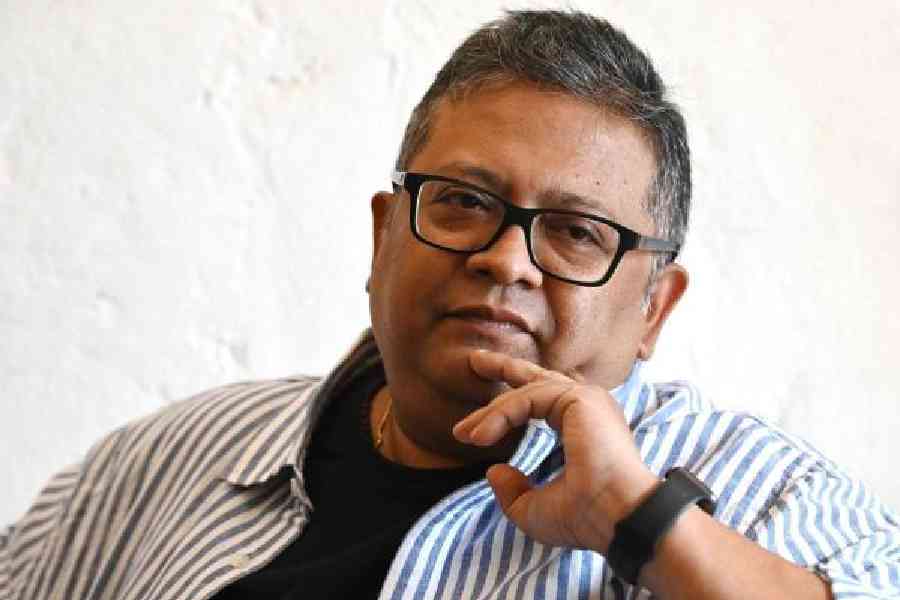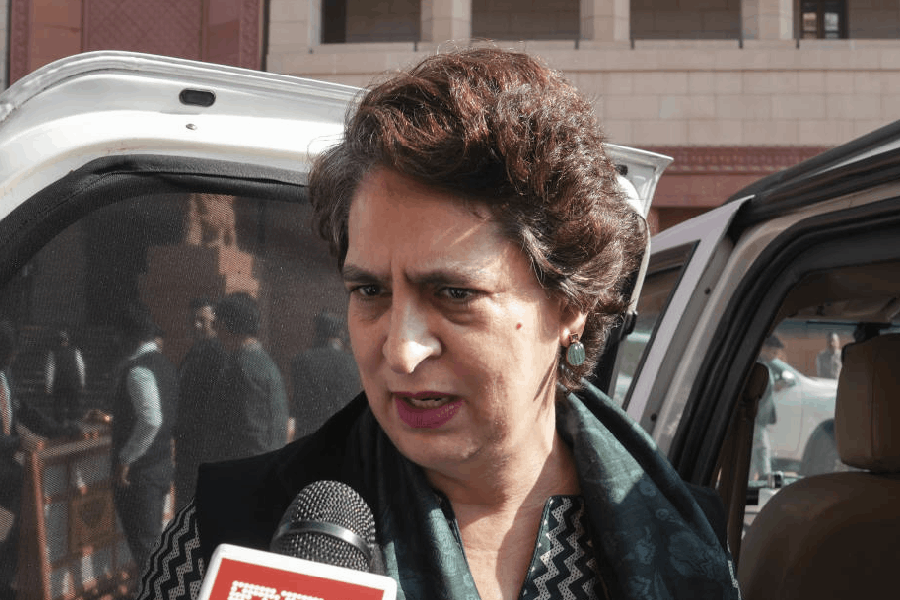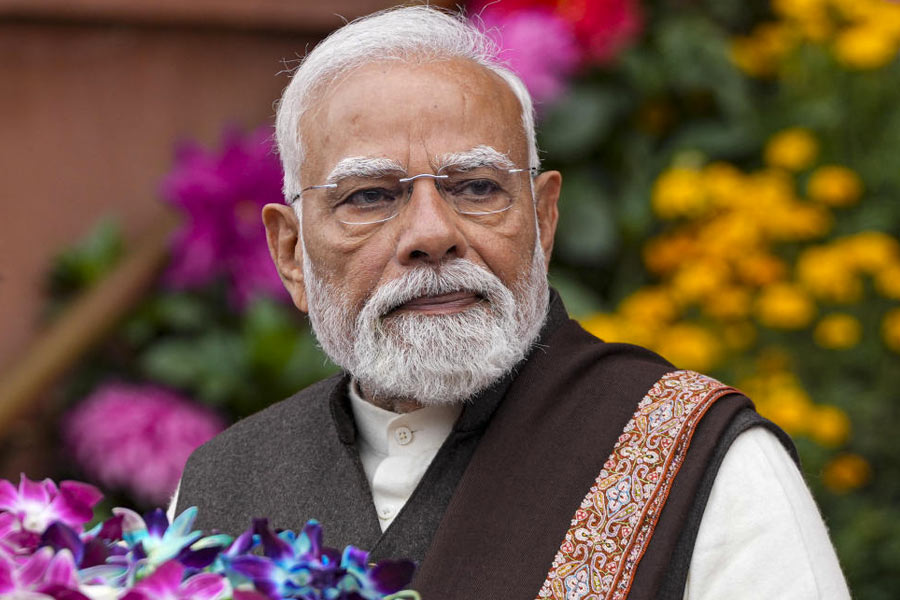Filmmaker Aniruddha Roy Chowdhury returned to Bangla cinema after a decade with a film that tugs at the heartstrings. Dear Maa, released on July 18, is being praised for its ability to evoke emotions. Even though it deals with a sensitive and serious subject like adoption, at no point does it come across as preachy. Through conflicts, resolutions, humour and pain, the filmmaker tells his story convincingly. A t2 chat with the director...
The rain is often used symbolically in your films, and in Dear Maa too, you have used it as a metaphor. Why is rain so important to you as a filmmaker?
There is something strange about the rain. It can destroy and create; torrential rain can devastate, while without rain, crops fail. Rain evokes romance and sadness. After a storm, there is a quiet — much like how we experience storms in life before finding peace and introspection. This connection between rain and emotions can be seen in Brinda as a mother and in Jhimli’s pent-up emotions for Brinda, which the rain parallels beautifully, especially with Subha Mudgal’s singing during that scene. Nature sometimes plays with our minds, and they resonate with each other, leading to an outcome.
Jaya’s character is called Brinda, which is a throwback to your film Antaheen. Is that a lucky name?
It was coincidental, but I’ve always had a fascination with the name Brinda, perhaps due to its phonetics. Sometimes, intuition guides your decisions, and I followed that instinct.
Exploring the teen psyche is not common in Bengali cinema. How challenging was it for you as a filmmaker to capture it?
I vividly remember my teenage years: the conflicts, crises, unhappiness, happiness, emptiness, and a longing for things that were often unattainable, both material and non-material. The conflict arises during the transition from childhood to adolescence, and character development occurs during this time. I have observed my daughter and the children of friends closely. We portray true conflict in the film. My actors have portrayed complex emotions maturely, be it the conflict in the mind of a five-year-old or in the mind of a 12-year-old. We conducted workshops to build a family-like atmosphere. Young actors like Ahana displayed remarkable maturity, asking insightful questions that enriched the process. The shoot felt like documentary filmmaking, capturing genuine emotions of these children on set.
You titled the film Dear Maa, but explored fatherhood beautifully. Why did you make the child address her father with the pronoun ‘tui’?
My daughter called me ‘tui’ as a child, and many of my friends’ kids do as well; it signifies affection. This term reflects the camaraderie and close bond between a father and his daughter.
You explore Jaya’s womanhood beautifully. From being not able to identify with maternal instincts to being resilient and yet vulnerable, you show her going through difficult cycles of menstruation where she seeks help from the family...
Strength and vulnerability coexist; just because someone appears strong doesn’t mean they lack moments of helplessness. I consider myself both weak and strong — stubborn and headstrong. Women possess both physical and mental strength that can outshine that of men, yet they also experience vulnerability, especially as mothers. When you become a mother, that exchange of love, care, expectation, and belonging can make you feel weak, especially when it comes to your daughter. This love is enduring and profound.
You are known for exploring unconventional relationships, such as Jaya’s bond with her professor in this film...
My own teacher, Somesh Dasgupta, helped me during an incident of theft in Vivekananda Park and took me to various police stations. Some friendships transcend labels and can be rooted in mutual dependence. While Jaya typically doesn’t rely on others, she seeks support from her professor, finding a calming energy and intellectual parity in their relationship. She needs him to listen her out. There is an emotional resonance between them and age plays no role in this. She feels seen by him. We all need someone in our lives like this, whether they are male or female. This dependence forms the basis of their relationship
Characters played by Chandan Roy Sanyal and Shayan Munshi are shown as sensitive, supportive men...
Discussions around men often portray them in a negative light. However, men can be good, too. They are not lacking in depth; they understand women’s spaces well. While conflicts may arise, there is inherent respect, and it’s that respect and understanding that sustain a relationship. Here, both men understand their women’s spaces. Much of the dialogue and scriptwriting credit goes to Sakyajit, as he has drawn from his life, my life, and the lives of others we’ve encountered. Over the course of two years, we collaborated intensely. I believe Sakya deserves recognition for bringing these characters to life. I contributed my suggestions as a filmmaker, and together, we made it happen.
The scene on the beach featuring the father and daughter reminds us of the iconic scene from The Namesake, where the father talks to the child about memories...
The similarity is a coincidence. I have this habit of revisiting places. I have revisited my film locations where we shot parts of Anuranan in Sikkim with friends. I enjoy this exercise of returning to familiar spaces. I have a strong attachment to them, but I recognise that spaces and people change over time, while memories remain constant. Cinema represents a director’s mind space and the journey through it evokes mixed emotions — sadness and joy alike. I still return to the area in Dhakuria where I lived in the 1970s and 1980s. Although the lane has changed, the house has remained the same, leading to a blend of emotions in me.
The conflict scene where the characters have a face-off was intense and suspenseful yet calm...
In terms of resolution, it’s important to recognise that no one is entirely right or wrong; we are all shaped by our emotions and circumstances. When adults understand and respect each other, empathy arises. In this film, the connection between the characters reveals that neither made a mistake; the unfortunate incident was simply a part of life. The film shows that we are custodians of experiences rather than possessors of them. We don’t possess anything. Finding understanding and acceptance allows us to transcend challenges and become more empathetic. Acceptance is a valuable virtue; once you start accepting after understanding, you find peace. A boatman once took me beyond the third layer in the sea. It is unimaginably tranquil there, but to be there we have to go through a rough sea. Life is like that. For the little one’s happiness, the mother can do anything.
The way light and shadow were used in each frame was so compelling and the background score complemented the dialogues...
Our cinematographer, Avik Mukhopadhyay, excels at creating drama through lighting and lens work even in a small space that enhances each scene. Arghya, our editor, dedicated nine months to this project; the commitment translates beautifully on screen. Bickram Ghosh’s talent as a percussionist is known to all of us. I wanted to explore a different Bickram and he allowed me to do it. This exploration resulted in a unique sound that truly shaped the film.
Saswata Chatterjee’s character was so interestingly written... full of humour and humanity...
Sakyajit wrote the character. It is inspired by a person I once met, who talks always but listens attentively. It is one of the best characters of my films. It is akin to Brecht’s The Caucasian Chalk Circle or Munnabhai.
You emphasised on the word ‘maa’ that concludes your film with a lump-in-throat moment...
Yes, it is a call that even a strong woman like Brinda craves for. Even a person not wanting a child is touched by it. This relationship has no give and take; it is purely about love. This call creates a sense of craving; regardless of her strength and choices, Brinda yearns to be called ‘maa’. I made Jaya walk a precarious line between danger and safety. If she faltered, she could either be hit by a passing car or fall into a valley. Her role was extremely challenging, and I admire how she handled it. She performed with intensity, like a boiling kettle on the verge of spilling over.









